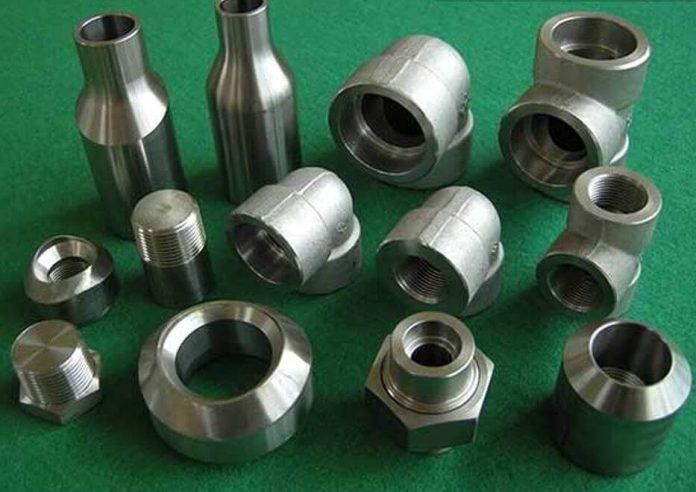What is Duplex Steel UNS S32205 Forged Fittings?
Duplex steel UNS S32205 is a stainless steel alloy comprising 22% chromium, 5% nickel, 3.2% molybdenum, and other trace elements. It offers an excellent combination of strength, corrosion resistance, and formability, making it an ideal material for piping systems. The tensile strength of this alloy is about 860 MPa (124 ksi) which is twice as strong as austenitic stainless steels like 304L or 316L. It also has good stress-corrosion cracking resistance due to its high chromium content. Duplex Steel UNS S32205 Forged Fittings are well-known for their excellent corrosion resistance due to their high chromium content. In addition, they also have good resistance to stress corrosion cracking, making them suitable for use in high-pressure applications.
Features of Duplex Steel UNS S32205 Forged Fitting
These Duplex Steel Forged Fittings offer excellent mechanical properties due to their dual-phase microstructure. As a result, they have higher tensile strength and higher yield strength than regular stainless steel grades, making them well-suited for heavy-duty applications that require long lengths and high pressures. In addition, these fittings also boast superior wear resistance thanks to their high chromium content, making them an excellent choice for tough industrial applications such as oil and gas pipelines or offshore platforms.
The cost efficiency of Duplex Steel UNS S32205 Forged Fittings comes from their durable construction. Thanks to its superior corrosion resistance, it can last longer than regular stainless steel grades without requiring frequent maintenance or replacement – resulting in lower long-term costs. It is also more resistant to temperature changes than regular stainless steel, reducing the risk of leaks due to sudden pressure drops or increases in temperature.
Applications of Duplex Steel UNS S32205 Forged Fitting
Duplex steel UNS S32205 forged fittings is widely used in piping systems requiring high strength and corrosion resistance. These fittings are commonly used in oil refineries, chemical plants, power plants, desalination plants, pulp & paper mills, offshore platforms/structures, etc. The main benefits these fittings provide are their high strength-to-weight ratio which allows them to withstand higher pressures than conventional carbon steel pipe fittings; they also have excellent pressure cycling capabilities and extremely low maintenance costs compared to other materials like carbon steel or copper alloy pipe fittings. Additionally, these products are available in a wide range of sizes up to 4 inches in nominal diameter, making them suitable for small-scale and large-scale projects.



